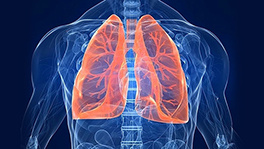
What is bladder cancer?
Bladder cancer is one of the most common cancer types in urinary system, arising from mucous membrane of urinary bladder. Epithelial cells of mucous membrane of urinary bladder are also named uroepithelial cells, from which develops urothelioma, a most common malignancy takes up to 90-95% in all kinds of bladder cancer. Other rare bladder cancers include squamous cell carcinoma and adenocarcinoma.
What symptoms of bladder cancer present?
Blood in urine. Bloody urine mostly occurs as intermittent or throughout the whole process of disease. It can also appear at the onset or by the end of a case. Some patients would have blood clots or slough-like tissues in urine.
Irritation of bladder. A patient would present the symptoms of urination frequency and urgency if a malignancy occurs in trigonum vesicae, or the lesion spreads or infection happens.
Urinary obstruction. The bigger tumor located in bladder neck and blood clots can arouse dribble urination or even urine retention. Tumor infiltration in ureteric orifice causing blockage in upper urinary tract would develop lumbar pain, hydronephrosis and damage of kidney functions.
Metastases. Pains in bladder, urethrovaginal fistula, edema in lower extremities, etc appear when advanced stage cancer invades tissues or organs around bladder and pelvic lymph nodes.
If you are diagnosed with cancer, please consult online doctors for more information.
Detection of bladder cancer
Cystoscope, through which can directly find the location, size, quantity, shape and infiltration extent of cancer. Biopsy should also perform when having this examination.
CT scan. It can find the tumor and swelling lymph nodes in an accuracy of 80%.
Ultrasound B. It can detect the size, location and infiltration degree in mucosa when a patient is having full bladder, a status that the mucosa of bladder wall is fully extending.
Ray contrast examination. Through it can a doctor know the bladder is full or empty and the infiltration condition. Combining with pyelography and ureterography, hydronephrosis and infiltration condition of ureter can be confirmed.
Staging of urinary bladder cancer
Stage 0: Cancer cells are found only on the inner lining of the bladder.
Stage I: Cancer cells have proliferated to the layer beyond the inner lining of the urinary bladder but not to the muscles of the urinary bladder.
Stage II: Cancer cells have proliferated to the muscles in the bladder wall but not to the fatty tissue that surrounds the urinary bladder.
Stage III: Cancer cells have invaded to the fatty tissue surrounding the urinary bladder and to the prostate gland, vagina, or uterus, but not to the lymph nodes or other organs.
Stage IV: Cancer cells have spread to the lymph nodes, pelvic or abdominal wall, and/or other organs.
Recurrent: Cancer has recurred in the urinary bladder or in another nearby organ after having been treated.
If you are diagnosed with cancer, please consult online doctors for more information.
What is the incidence of bladder cancer?
Bladder cancer accounts for 3% of all malignant tumors all around the world and over 350,000 people are diagnosed of it each year. It happens in all ages but tends to occur within the age range of 50-60. Moreover, the incidence goes up as age increases and would be 3-4 times higher for male to develop bladder cancer than female.
Bladder cancer is caused by interaction of multiple factors. Smoking and occupational contact of aromatic amine are the main known contributors to urinary bladder cancer. There are other related factors of it.
Carcinogenic substance in drinking water. Taking the water with chloride left through chlorine sterilization would increase the risk of getting bladder cancer.
Diseases of urethra. Long-term and chronic irritation in urothelium or carcinogenic substance from body metabolism increases in urine would result in epitheliosis of urinary tract that cancerization occurs.
Drugs. Take massive doses of a painkiller named phenacetin would increase the risk of bladder cancer too.
How to treat bladder cancer?
Surgery. The most proper surgery method should be chosen according to pathological diagnosis and general physical condition of a patient, and these methods include:1) Transurethral incision of bladder tumor2) Radical cystectomy .
Radiotherapy and chemotherapy. Both of them can be taken as assistant therapies. Elective radiotherapy and chemotherapy before or after surgery can help to improve the treatment effect and the living quality of a patient.
TCM (Traditional Chinese medicine). It can apply throughout the whole treatment for bladder cancer patient. No matter used singly or combined with chemotherapy or radiotherapy, it can take the effect of suppressing tumor and improving patient’s living quality and so on.
If you are diagnosed with cancer, please consult online doctors for more information.
Nursing methods of bladder cancer
Diet care
A bladder cancer patient should take more fresh fruits and vegetables.
Have diets with high protein, such as eggs, milk and fish and so on.
Adjust the diets according to patient flavor, but spicy food or the diets which are hard for digestion should be forbidden.
Post-operative care
Keep the ward clean and the air fresh.
Prevent from getting infection and improve the immunity of patient.
Family should always support the patient to help him eliminate the negative emotions.
Treatment for bladder cancer
A multidisciplinary team composed of surgeons, pathologists, radiation cancer experts, minimally invasive oncologists, nurses for cancer nursing and interpreters carries out specialized consultation according to symptoms and conditions of patients with bladder cancer and then gives treatment plans that are most applicable to the patients, in order to greatly improve the therapeutic effect for bladder cancer patient.
If you are diagnosed with cancer, please consult online doctors for more information.


 (MY)+60 10-898 8919
(MY)+60 10-898 8919


























 Leave
Leave